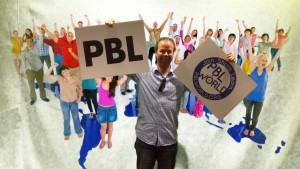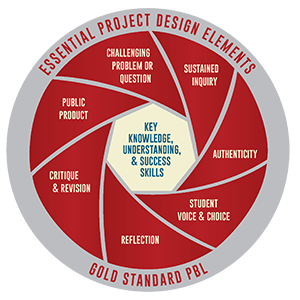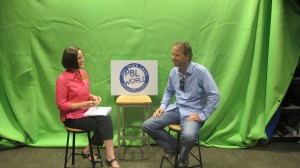I presented a workshop on PBL at the NSW ICT Educators’ Conference earlier this year. About 30 minutes into my presentation one of the attendees asked why I was just talking about the successes of implementing PBL? He wanted to know what mistakes I had made along the way. This was a light-bulb moment for me. I work with a colleague who whenever he hears another school advocating some sort of successful program, will always ask, “OK, but where are the warts?”
So yesterday I spoke at TeachMeet Mint about some of the mistakes, failures and disasters I have experienced with PBL. I have been experimenting with PBL approaches for the past three years. My first serious attempt was with a weak Year 9 History class. I was determined to get them writing, and enjoying it. In pairs they wrote chapters for an historical fiction book about an Australian soldier fighting at Gallipoli. It didn’t work very well. The story-line changed from chapter to chapter, with different names for key protagonists and no real thread holding the work together.
The following year my class wrote stories about World War One for a kindergarten class in the Northern Territory, who then illustrated the stories and we made it up into an audio e-book. However, this time my students obsessed over the stories for the 6 year-olds and lost sight of the history, and some of the stories were too bloodthirsty for 6 year-olds.
This year I simplified it and we wrote historical stories for the Grade 3 class across the road and they illustrated the stories for an e-book. Three years in, the project has become more manageable and more successful.
At the end of last year my class provided me with warm and cool post-it note feedback on each of the four projects I ran. In Year 9 I have established a pattern where I teach an overview of the course for about 7 weeks and then for the last 3 weeks of term they go into depth on an area in a PBL assignment. One of the key pieces of feedback from the students was that the first PBL task that they do in the year needs to be simple, so they understand how to learn this way. Three years ago my driving question was the ambitious “Is it best we forget?”. Now it is simply, “How can we write a story that will teach World War One to 9 year-olds?”
Three years ago I also designed a task which asked my class to design viral videos about an aspect of World War II. It was an unmitigated disaster. No amount of critique or feedback was going to salvage this operation. After cringing through bleating goats, images from the film Frozen, and boys engaging in mock fights on the oval, the task has now simply become “How can we design an awesome World War II documentary?” It is simple and it works.
Last year I ran a project for my class to design and implement a social media campaign for rights and freedoms. The students didn’t know where to start. This year it became an advertising campaign for rights and freedoms, which seems much more achievable.
One task that has not required much modification is a task on popular culture, framed around the driving question, “How cool were your grandparents?” Students interview their grandparents, or someone similar, about their memories of music, film, radio, TV, sport and fashion, and then write it up into a short report with a photo for an e-book. This year I am going to send the finished e-book to the grandparents and ask students to come to class wearing one fashion item from their grandparents on the day that it is due.
I’m now thinking for next year that I might move the PBL task to the start of each topic, rather than at the end. I have been considering a teaching principle I heard mentioned in a keynote earlier this year, ensure that “lecture comes later”, starting with inquiry and piquing the students’ interest before delivering the content.
Everything that I have typed above is anecdotal. It is from my memory. I tend to throw out what hasn’t worked and start again, so I no longer have the tasks that didn’t work so well, but that I learned so much from three years ago. Learning (and teaching) is an iterative process. My key message is that I need to start doing a better job of documenting my own learning.




